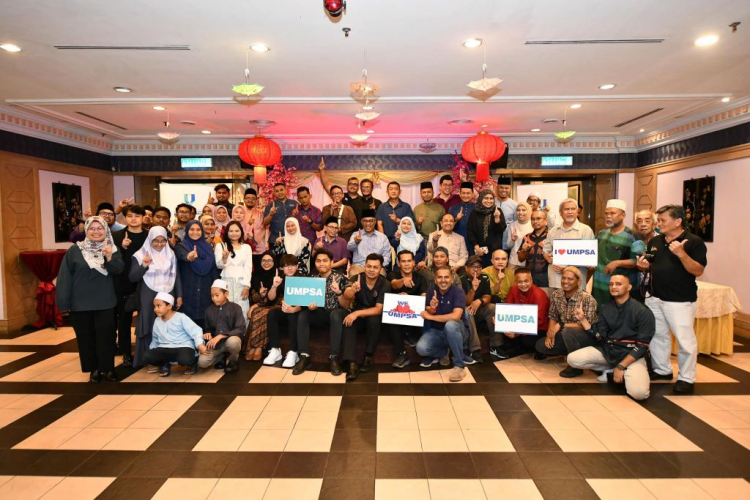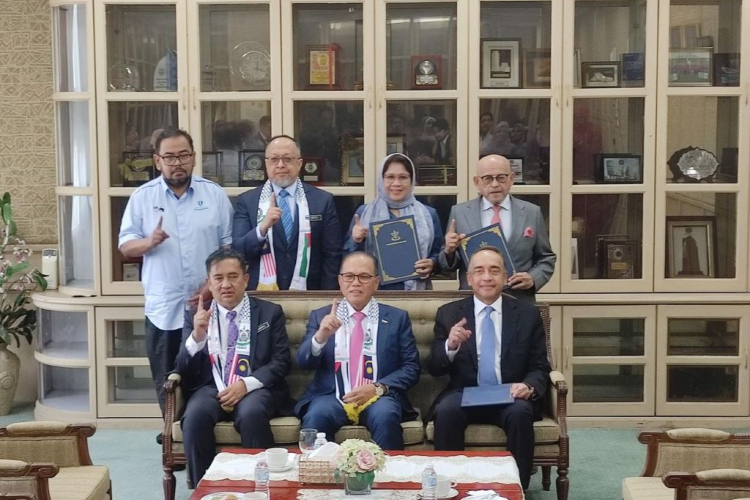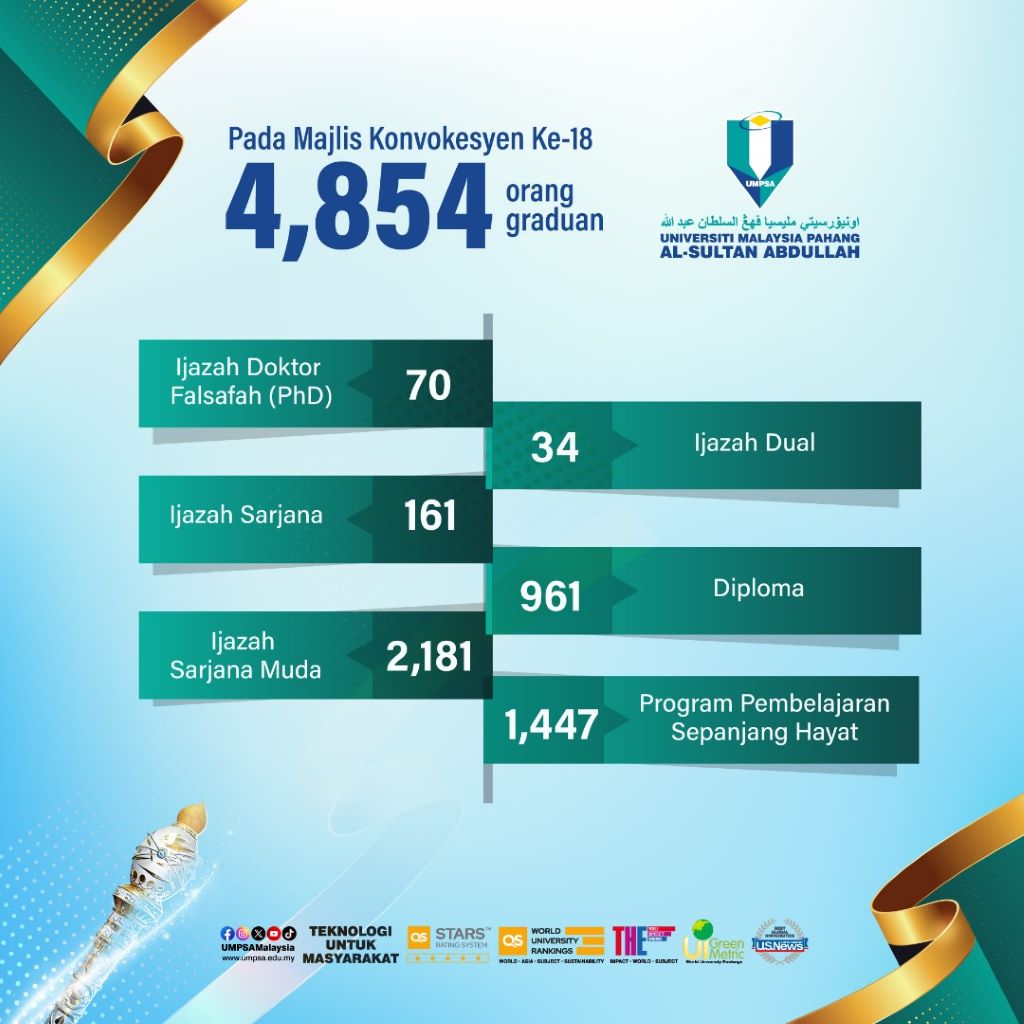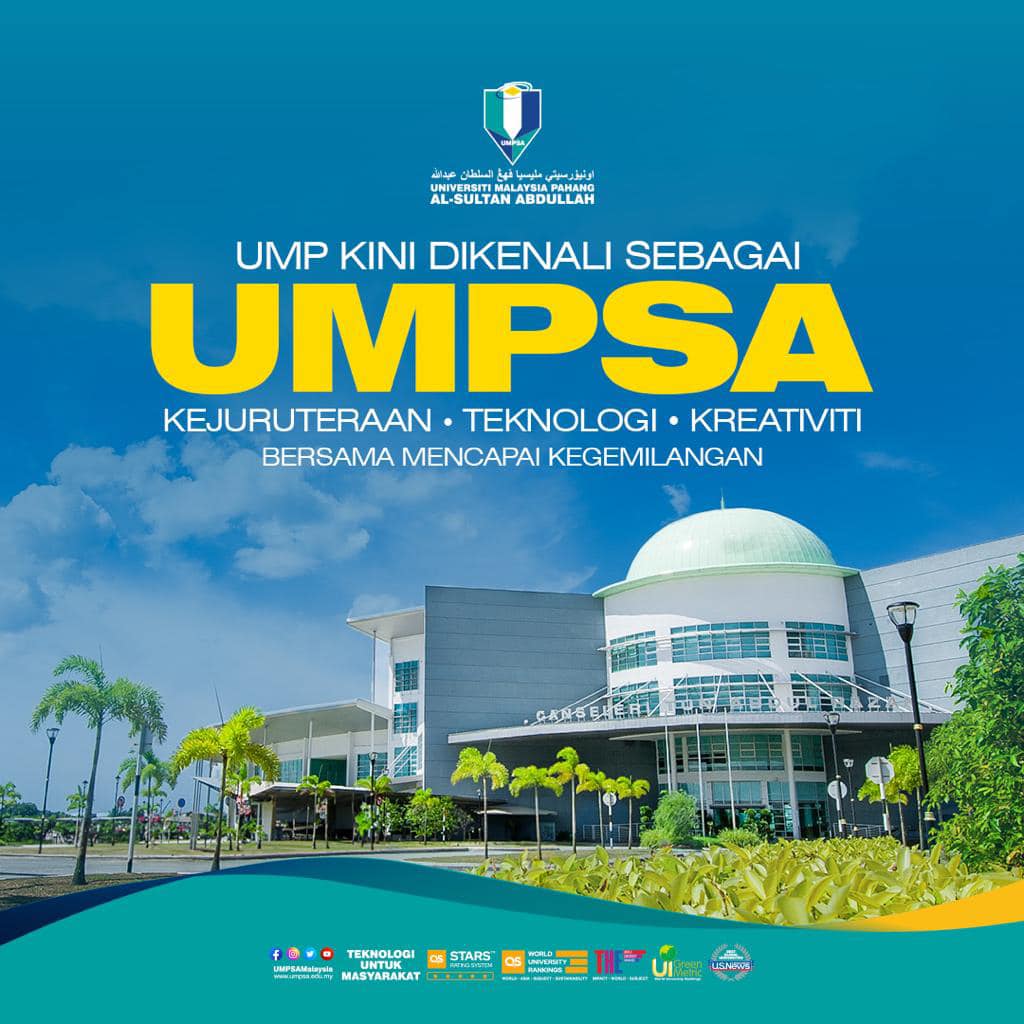Palm-O-Lite promotes healthy lifestyle, resolves cooking oil issues
Concerned about the negative habit of Malaysians who love to use more-than-necessary oil when cooking – which tend to result in accumulation of saturated fat in their bodies – three researchers at Universiti Malaysia Pahang (UMP) have collaborated to produce Palm-O-Lite, a palm-oil based aerosol to be used in culinary industry to facilitate cooking while simultaneously promoting a healthy lifestyle.
Head of Research, Dr. Izan Izwan Misnon, who also lectures at the Faculty of Industrial Sciences & Technology (FSTI), said, together with Dr. Saifful Kamaluddin Muzakir and Dr. Nazikussabah Zaharuddin, the three came up with the name “Palm-O-Lite” for their research product, after combining the root words palm oil and light – which the latter is supposed to signify low fat intake.
“Palm-O-Lite is the result of our research efforts, since 2017, to produce a cooking oil that is simple, easy and comfortable to use, which additionally promotes healthy lifestyle.
“The product also acts as a non-stick agent, reduces fat consumption and gives the cooked dish a more appealing aroma and presentation.
“To promote palm oil as a value-added alternative in cooking, Palm-O-Lite was formulated and bottled as a culinary aerosol, which now proves suitable to be used in cooking simple dishes, baking cakes and barbecuing,” he highlighted
According to Dr. Izan Izwan, the idea was mooted when often-times there is a penchant for overflow when pouring cooking oil into the frying pan, using existing cooking utensils.
“Hence, spraying the Palm-O-Lite oil from an aerosol bottle resolves the problem and provides a better alternative.
“Additionally, as a non-stick agent, Palm-O-Lite also helps remove the need to use bakery paper or a layer of oil, when baking cakes or cookies,” he jubilantly added.
Dr. Izan Izwan stressed that the team also looked into the problems caused by using other cooking oil products in the air-fryer, waffle and takoyaki pans, as well as on the steel grill, where items fried tend to stick to the pans or grill, not to mention the hassles of scrapping the grease or crumbs when cleaning such cooking utensils.
In terms of product commercialization, the researchers discovered that most supermarkets only sell vegetable cooking oils composed of canola, olive, sunflower seeds and soya base.
“In comparison, palm oil-based cooking oil is not genetically modified and free from cholesterol and trans-fat. It only contains 52 percent saturated fat, 38 percent mono-unsaturated fat and 10 percent poly-unsaturated fat.
“Furthermore, its Oil Stability Index (OSI) is far better than other vegetable cooking oils’, and is really suitable for cooking dishes at high temperature.
“Notwithstanding such traits, Palm-O-Lite has equivalent nutrients when compared to similar or other cooking oil products currently available in the market,” he quipped, adding that the compounds making up the palm oil-based cooking oil, inclusive of additives, are up to the benchmarked food standards, or E-number; and Palm-O-Lite is nicely packaged into a propellant-filled bottles.
“The spraying pressure from the bottle produces a thin layer of non-stick aerosol oil onto the cooking utensils. On average, only some 0.3 to 0.5 gramme of Palm-O-Lite is needed for each cooking session,” said Dr. Izan Izwan.
Palm-O-Lite is produced fully from palm oil, in response to the call from the Ministry of Primary Resources to focus on higher consumption of the country’s palm oil production, to help boost national socio-economic progress, better healthcare provision and, healthy food intake and applications.
As a net exporter of palm oil, its supply in Malaysia is readily available and much cheaper to obtain, when compared to other cooking oil products.
Hence, Palm-O-Lite has commercial potentials to be marketed as alternative to or as an additional cooking oil at home, and for use in the bakery, food truck and hotel industries, as well as for outdoor activities (like picnics).
Recently, Mordor Intelligent reported that the global market for vegetable cooking oil is projected to value at some US$190 billion, or RM773 billion, by 2020 – thus, it seems rather realistic to just target 0.1 percent of such market for Palm-O-Lite.
Presently, the research is at the secondary prototyping stage, and the team has been granted the university’s Lab2Market funding to undertake product development with commercially viable traits.
Thus far, Palm-O-Lite is formulated for non-stick, frying and barbecuing applications, but with further research, its formula can be improvised to include flavors, such as lemon, for salad preparations, for example, and to add zesty aroma to the cooked dishes.
The research trio is also collaborating with Symbiotech PLT, a symbiotic company under the purview of Malaysian Technology Development Corporation (MTDC), to explore the appropriate commercial segments to penetrate and conduct market research to promote Palm-O-Lite domestically and globally.
Dr. Izan Izwan said he hoped, at the very least, the collaboration will produce a positive outcome for Palm-o-Lite to be well-received in the local market. For this initial phase, Palm-O-Lite is packaged into 200 gramme bottles and sold between RM13 and RM15.
He said the research team will also continue to improvise the bottling design to be more user-friendly, and expressed his wish for Palm-O-Lite to be certified halal with good manufacturing practice (GMP).
Last year, Palm-O-Lite won the gold medals at the International Invention, Innovation & Technology Exhibition (ITEX 2018) and Creation, Innovation, Technology & Research Exposition (CITREX 2018). The cooking oil aerosol also took home a bronze medal from the Seoul International Invention Fair 2018 (SIIF 2018).
By Nor Salwana Mohd Idris dari Bahagian Komunikasi Korporat


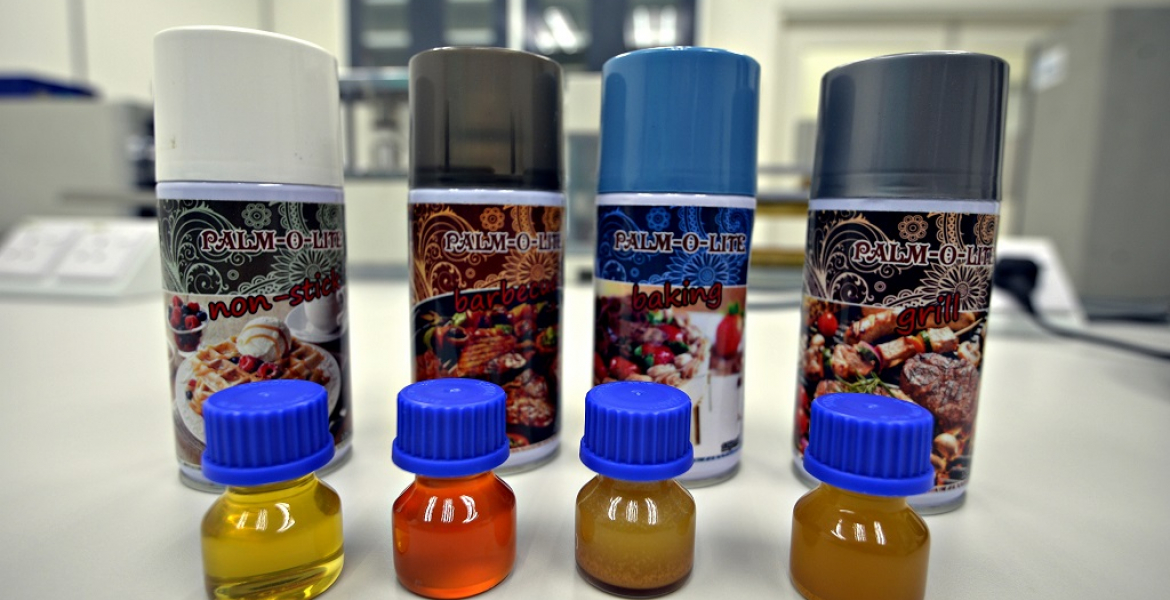
 Reports by:
Reports by: 

